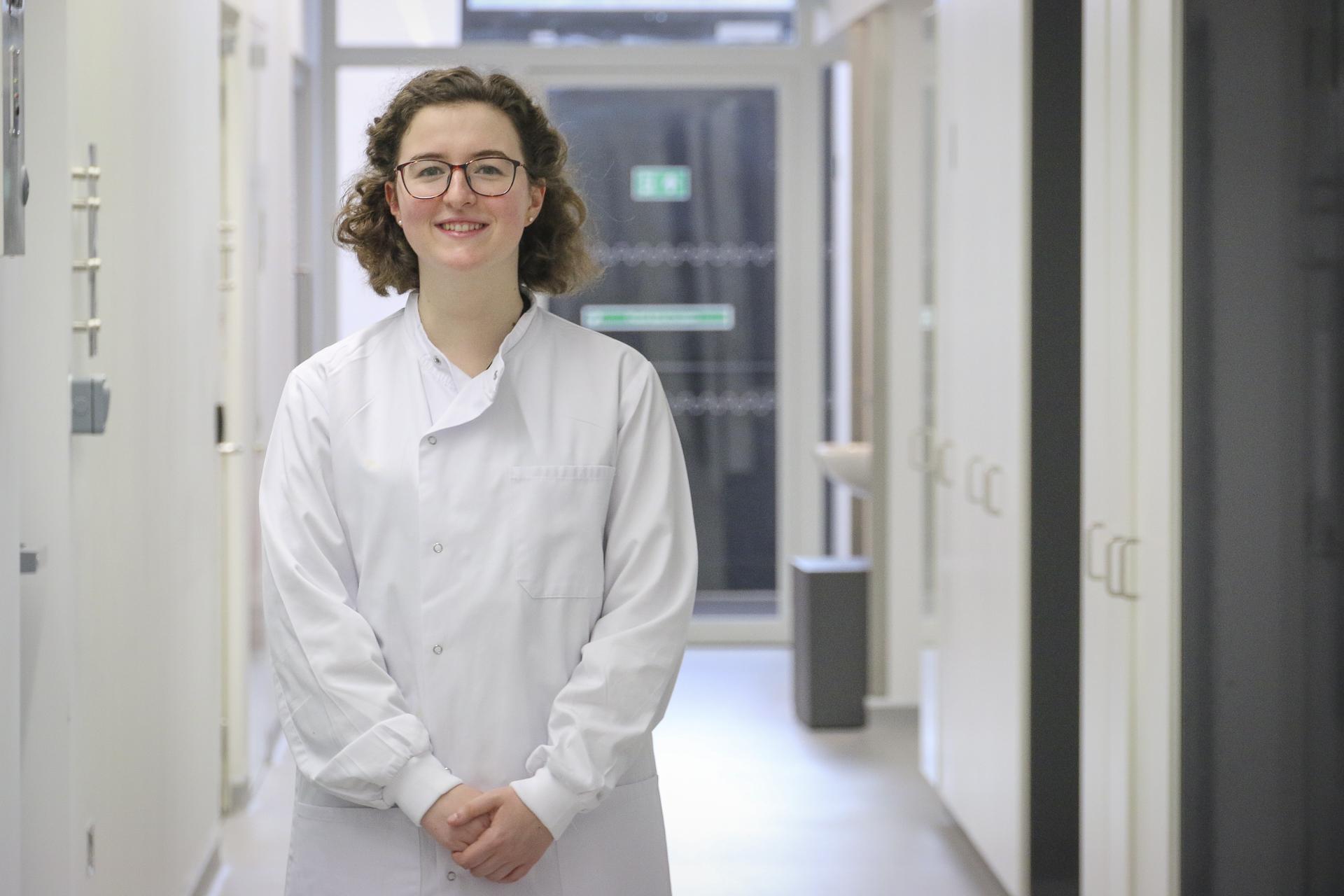First year PhD student Charlotte Cook was recently thrilled to learn that she is being given an In Vivo Skills Award from the Biotechnology and Biological Sciences Research Council (BBSRC), part of UK Research and Innovation (UKRI). Only three such awards are offered by the BBSRC UKRI-funded Oxford Interdisciplinary Bioscience Doctoral Training Partnership (DTP) programme.
Charlotte, whose PhD supervisor is Dr Pip Beard, Head of the Large DNA Viruses Group, will use the £15,000 funding to design and carry out in vivo experiments to determine the role of insect vectors in causing lumpy skin disease (LSD) in cattle. The experiments will focus on the stable fly Stomoxys calcitrans, thought to be the one of the primary vectors in the transmission of LSD between cattle.
Unlike other closely related poxviruses, which invariably cause clinical signs in 100% of cases post-inoculation, needle inoculation with lumpy skin disease virus (LSDV) results in disease in just 38% of cattle. This hints that other factors may be influential in infection by LSD.
Charlotte will be investigating whether stable fly saliva is one of those factors by comparing the clinical signs that develop over time in cattle inoculated with LSDV with or without stable fly saliva. The award will provide the funds to do these otherwise prohibitively expensive in vivo experiments that require high containment facilities.
“It’s really exciting to get this funding right at the end of the first year of my PhD as it will act as a catalyst for the next year”, said Charlotte. “It means we will be able to produce quantitative data that will help us understand if stable fly saliva and the associated immune response early after inoculation plays a role in disease outcome.”
Research carried out with bluetongue virus, dengue virus and West Nile virus among others to show that midge and mosquito saliva can influence the outcome of virus inoculation. It has not yet been shown for viruses transmitted by stable flies though. Extracting and working with insect saliva can be difficult, and Charlotte will rely on the expertise of her co-supervisor at Pirbright, Dr Karin Darpel, Head of the Orbivirus Group, who has developed a technique to extract saliva from mosquitoes and midges that will be adapted for use in these experiments with stable flies.
Charlotte’s PhD studies are part-sponsored by MSD Animal Health. Dr John Atkinson from the International Veterinary Health department at MSD Animal Health said “Charlotte’s success in obtaining the additional funding is great news. The in vivo study will increase the impact of her PhD research, and contribute to the development of more effective control programmes for LSD.”
The In Vivo Skills Awards recognise the scientific and strategic importance of ensuring advanced in vivo skills are retained and enhanced within the UK research ecosystem. Along with the valuable in vivo research training Charlotte will receive, the outcomes of these experiments could have the potential to increase the application of the 3Rs in LSD research by leading to reduction and refinements in animal studies. In addition the results could be applied to the development of in vitro models of LSDV infection that more closely mimic in vivo infection, which might replace animals in some experimental situations.
“I’m delighted Charlotte has been successful in securing this award. It is a testament to the enquiring and inventive approach she employs in her research, and her perseverance”, said Dr Pip Beard. “In vivo skills are vulnerable but strategically important skills for the bioscience community. This project will provide Charlotte with significant hands-on, in vivo skills training and allow her to investigate the importance of insect saliva in LSD using the most relevant model available – cattle.”
